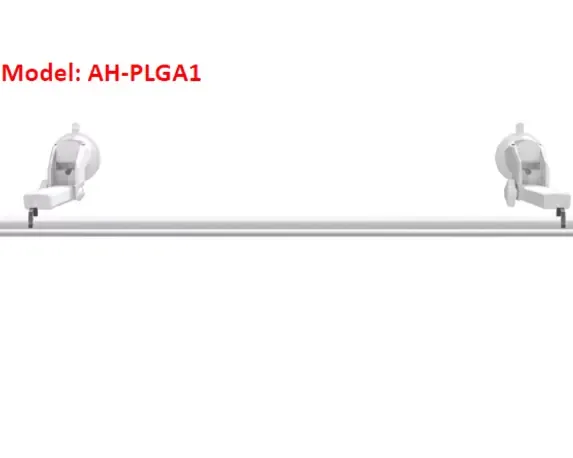
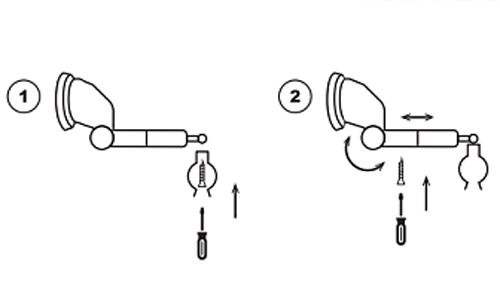
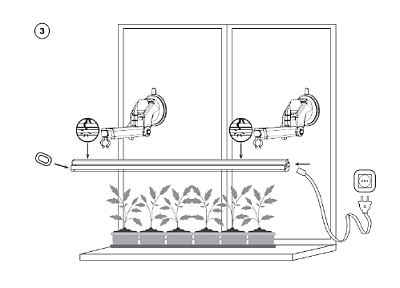
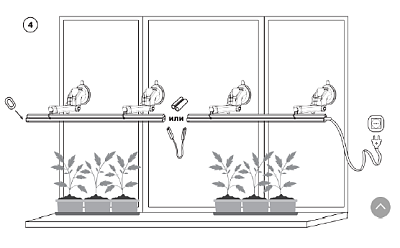
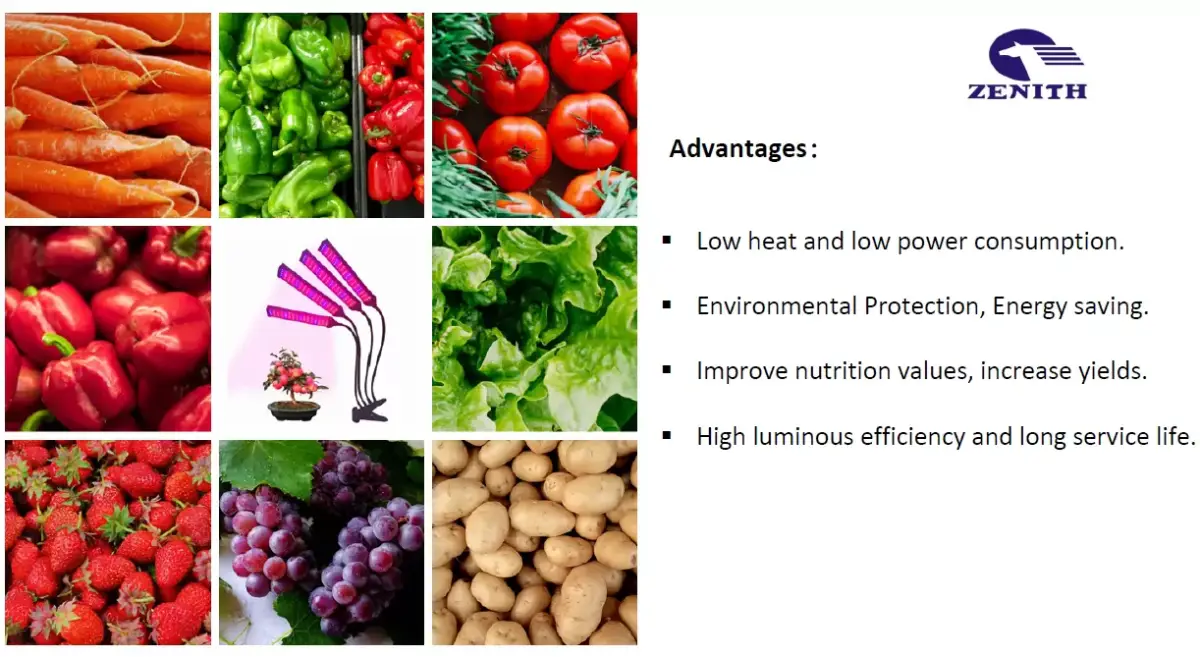
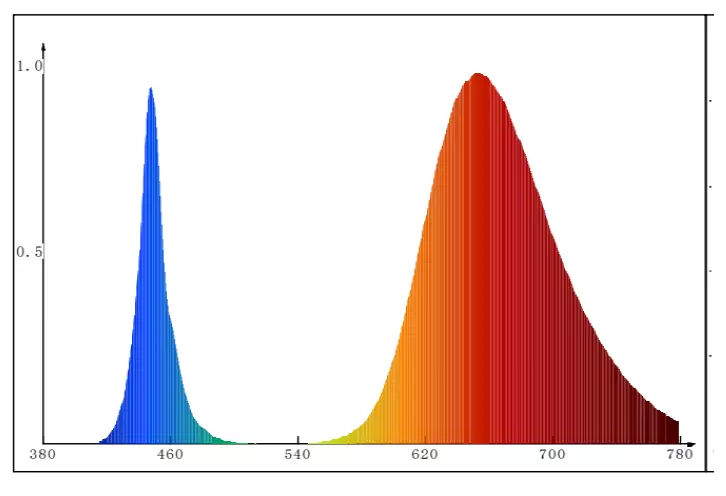

| The effects of different spectrum ranges on plant physiology: | |
| 280 – 315nm | Minimal impact on morphology and physiological processes. |
| 315 – 400nm | Low chlorophyll absorption,Affect the photoperiod effect, Prevent stem elongation. |
| 400 - 520nm(blue) | The absorption ratio of chlorophyll and carotenoids is the largest,Greatest impact on photosynthesis. |
| 520 – 610nm (green) | Pigment absorption rate is not high. |
| 610 – 720nm(red) | The absorption rate of chlorophyll is low, which has a significant influence on photosynthesis and photoperiod effect. |
| 720 – 1000nm | Low absorption rate, Stimulate cell lengthening, Affect flowering and seed germination. |
1.Variety of flowers
2. Microgreen, seedlings, propagation
3. Herbs and leafy vegetables (i.e. lettuce, chives,spinach, amaranth, swiss chards, basil, micro-greens etc.)
4. Fruits, vegetables (tomato, eggplant, pepper, cucumber, strawberries, gourds etc.)
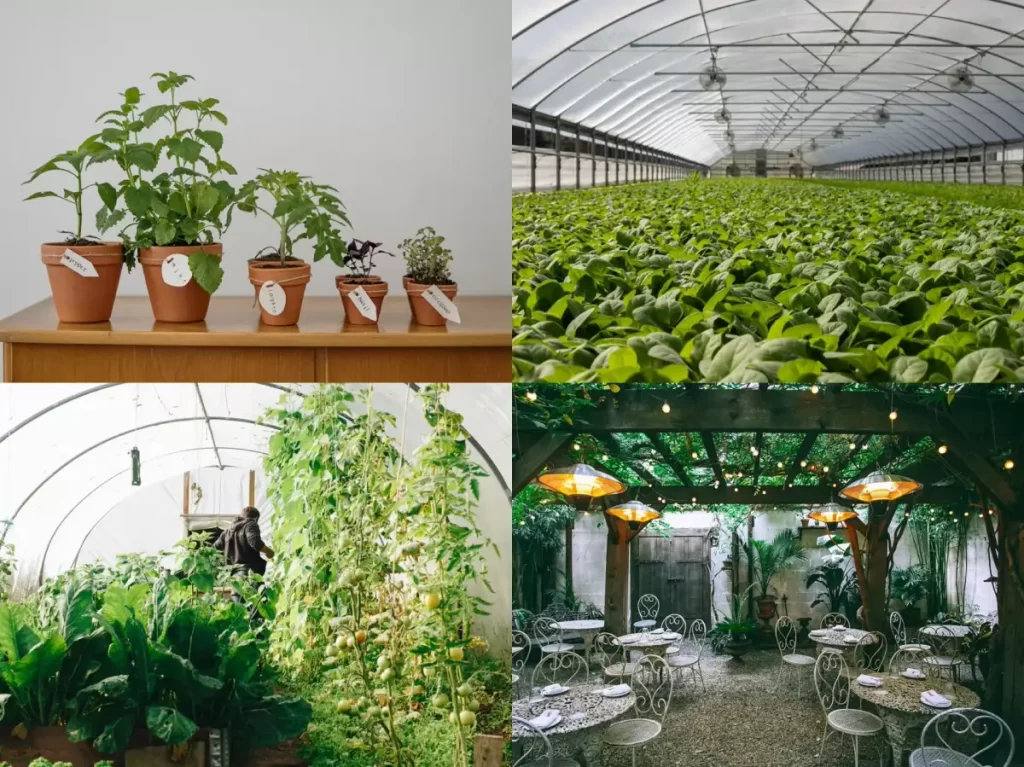
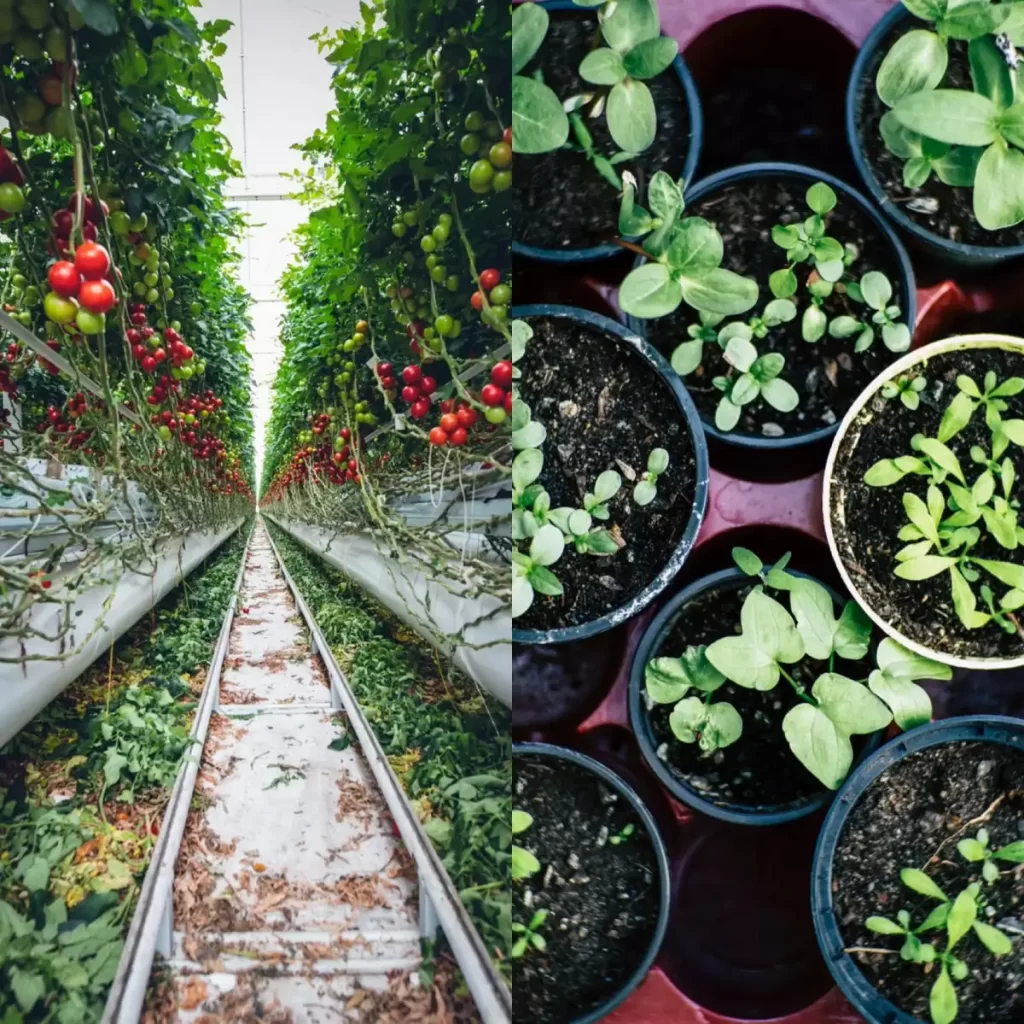
LED Plant Grow Light Series
LED plant light helps shorten the growth cycle of plants. The light source of this light is mainly composed of red and blue light sources, which, in addition to giving the plants a supplemental light during the time of light deficiency, also allows the plants to promote the differentiation of more lateral branches and buds, accelerate the growth of rootstocks and leaves, speed up the synthesis of plant carbohydrates and vitamins, and shorten the growth cycle. This LED Plant Grow Lighting series including: Intergrated T5, T8 Tubes, Lamps, Clip Light and accessories.

